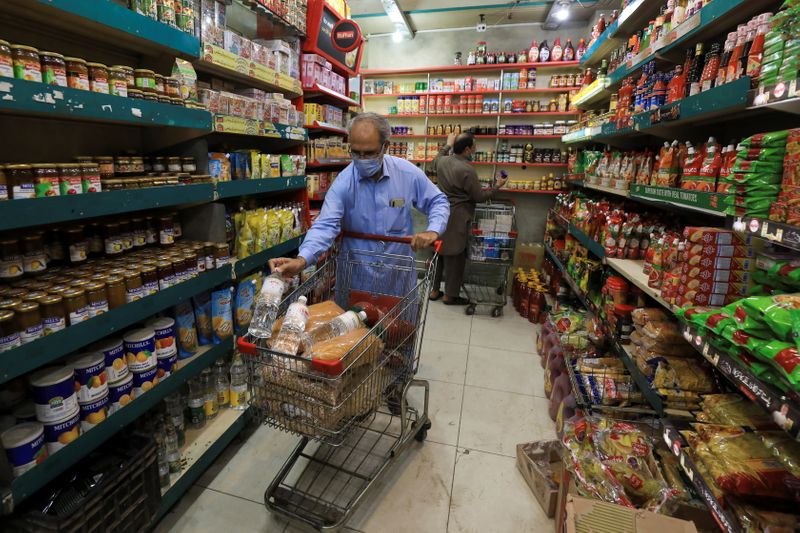(Reuters) - The global grocery sector grew a record 10% in 2020, industry data showed on Wednesday, as people stuck at home under COVID-19 restrictions cooked, baked and drank more.
Market researcher Kantar said everything from canned meat and beer to sugar and bleaches flew off the shelves, with the United States accounting for the largest chunk of the spending, followed by Western Europe, Latin America, Eastern Europe and Asia.
Data for the report was collected from households in 42 countries, representing 66% of the global population and 83% of gross domestic product (GDP), Kantar said.
Beverages, dairy and food, which typically account for almost two-thirds of global grocery sales, saw the biggest gains, with 15 of the top 20 categories most positively impacted by COVID-19 coming from these sectors, according to Kantar's 2021 global FMCG Omnichannel report released on Wednesday.
Growth in scratch cooking and home baking powered sales of canned meat up 26%, sugar and sweeteners up 15% and herbs and seasonings up 13%, the Kantar report showed, with Latin American customers driving the gains in most of the food categories.
Western Europeans, who had dealt with some of the most prolonged lockdowns, nursed their boredom with alcohol, pushing up sales more than five times in 2020, compared with 2019.
Western Europe and Latin America alcohol sales grew 25% and 20%, respectively, while Asians were more sober in their approach to the pandemic with sales falling 10% in the region last year from 2019.
The pandemic also led to a big shift in where people shopped.
E-commerce as a channel saw the highest growth in sales, followed by cash-and-carry stores and discounters. E-commerce on the whole now accounts for 6.5% of grocery sales globally, the report said.

Among retailers, supermarkets saw strong share gains in the United States while discounters grew in Eastern Europe.